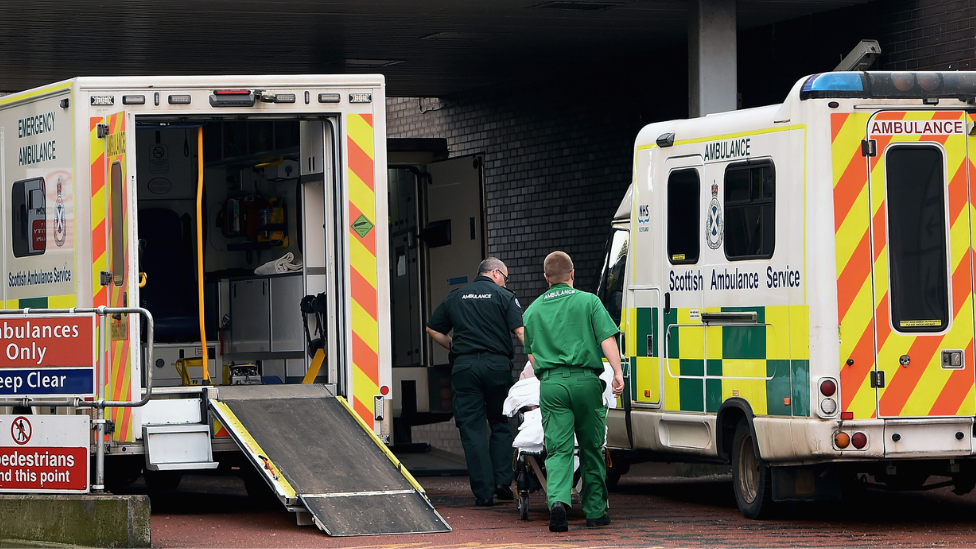Welsh ambulance worker abused by patient felt 'ashamed'
- Published
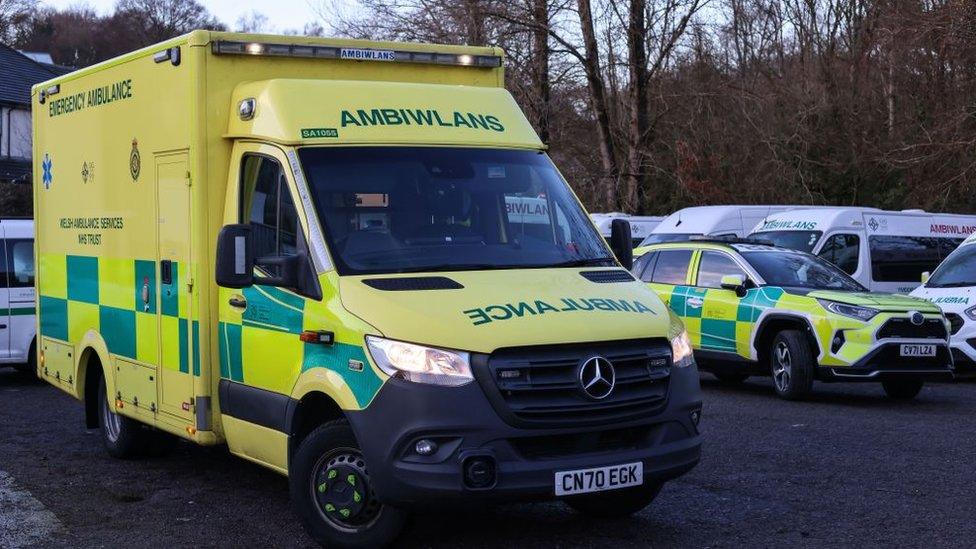
A total of 86 reports of sexual harassment and assault were recorded between January 2018 and March 2023
An ambulance worker who was sexually assaulted by a patient says sexual attacks and remarks by the public leave her feeling "extremely vulnerable".
Recorded incidents of sexual misconduct against Welsh ambulance staff have risen each year for the past five years.
A total of 86 reports of sexual harassment and assault were recorded between January 2018 and March 2023.
Almost two in every three physical attacks reported by staff were sexual.
Persistent under-reporting of sexual misconduct means the scale of the issue is likely to be larger than the data suggests, a women's charity has warned.
The Welsh Ambulance Service Trust (WAST) said the increase reflected greater confidence among staff to report abuse.
'Extremely vulnerable'
Sara, not her real name, said she was assisting a patient to an ambulance when she was assaulted.
"He took it upon himself to put his hand on my breast and slid his hands down my body towards my private parts," she said.
Ambulance workers face this kind of abuse "far too often", she added.
"Things like, 'I wouldn't mind you coming over here and giving me a body check'.
"When you're in a pub and you're surrounded by an awful lot of people that are intoxicated, and someone makes a remark like that, you feel extremely vulnerable."
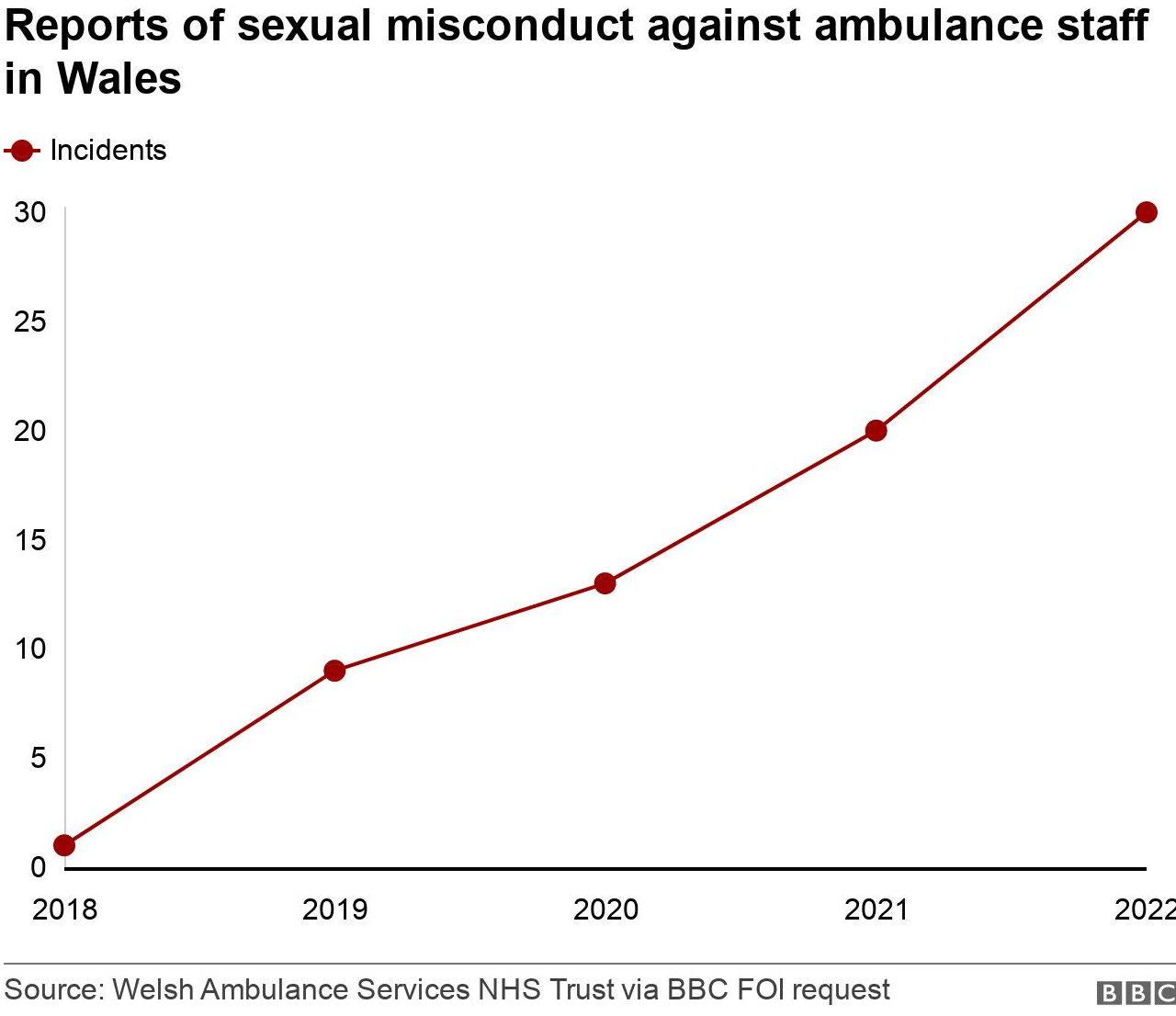
Only one incident was recorded in 2018 compared with 30 in 2022, according to data obtained from WAST by a BBC freedom of information request.
Thirteen incidents had already been recorded by the end of March 2023, suggesting there could be a further increase this year.
Sara said this rise was probably a result of greater confidence to report abuse, and praised the support she received from WAST.
But she still worried many were staying silent due to a fear of being "belittled" by colleagues.
She said she felt too "ashamed" to tell colleagues about her experience, fearing she would be told she was "overreacting".
She compared this with times she had been physically attacked, "and didn't feel ashamed to tell anybody".

Stephanie Grimshaw, of Welsh Women's Aid, says people worry about the impact reporting abuse will have on their job
This is a common fear, according to Welsh Women's Aid. It means the amount of sexual misconduct that gets reported is "always" lower than the reality, particularly in the workplace, according to the charity's Stephanie Grimshaw.
"There's a perception that it would impact on their job, that people would perceive them differently," she said.
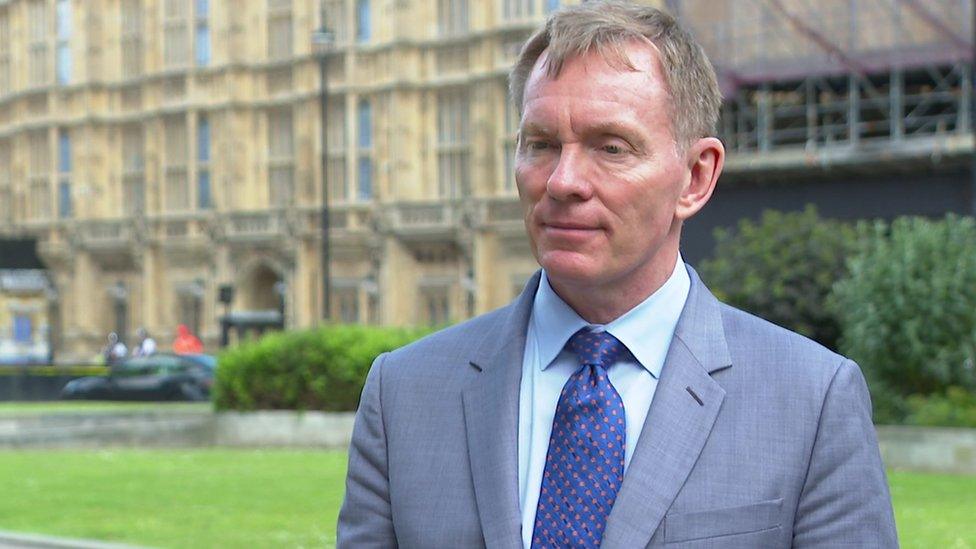
Sir Chris Bryant, the Rhondda MP, says it is "depressing" that staff continue to face sexual abuse
Sir Chris Bryant, MP for Rhondda, said employers, including WAST, must work with unions and staff to prevent attacks on emergency workers.
Mr Bryant sponsored the Assaults on Emergency Workers Act (2018), which doubled the maximum sentence for attacking such staff.
He called it depressing that staff continued to face abuse almost five years on, arguing that the law on its own was not enough to protect workers.
"We're already struggling to have a proper ambulance service that gets to people in time," he said.
"If we're losing people because they think, 'I'm sorry I can't put up with this work anymore', then that's going to make it doubly difficult."
'Always more that can be done'
Jason Killens, chief executive of WAST, said the increase in incidents reflected greater confidence among its staff to report abuse.
"Some of that will be a function of work we've done inside the organisation to encourage our people to report incidents more, and also to support our people more when incidents do occur," he said.
Mr Killens also noted that WAST's With Us Not Against Us campaign, launched in May 2021 to highlight abuse faced by emergency workers, would have brought attention to the issue.
He said he was sad to hear of Sara's experience, adding: "I'm sure there's always more that can be done, and that's why we want to hear from our people about what they feel would be appropriate to support them."
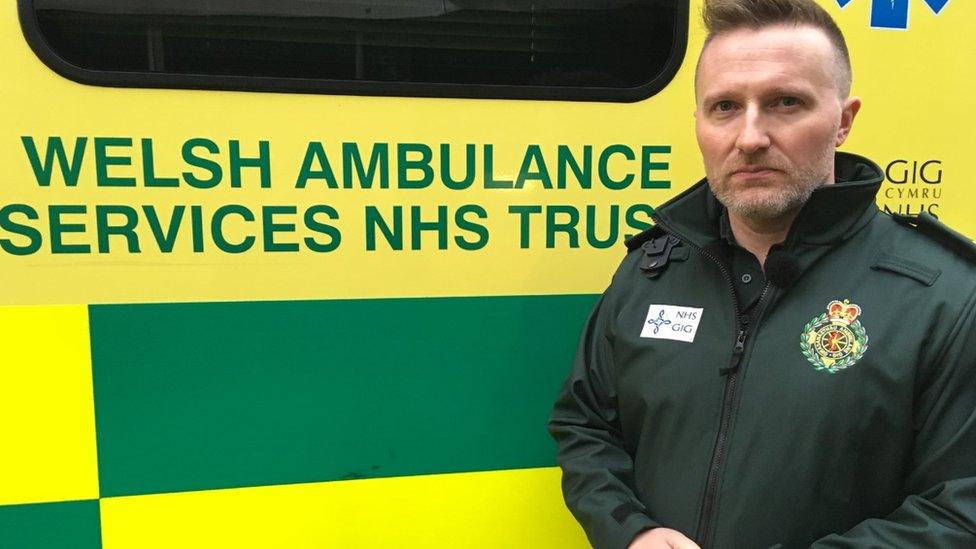
Jason Killens, head of the ambulance service, says the rise in reports reflects greater confidence among staff to come forward
WAST referred 98% of reports to the police.
"We work with partners across the enforcement agency and the judiciary to ensure that those which are guilty of assaults on our staff are brought to justice and receive appropriate penalties," said Mr Killens.
A WAST spokesperson added that the service has "a range of welfare measures" to support staff and encourage reporting, including a confidential reporting platform.
"This provides a further level of reassurance regarding any concerns individuals may have that coming forward will impact on their role and career prospects," they said.
"We are committed to working in partnership with our trade union colleagues on this issue and continue to reinforce the message to all our staff that they will have our total support if any incidents do occur."
If you have been affected by issues raised in this article you can visit the BBC Action Line pages.
Related topics
- Published2 November 2016
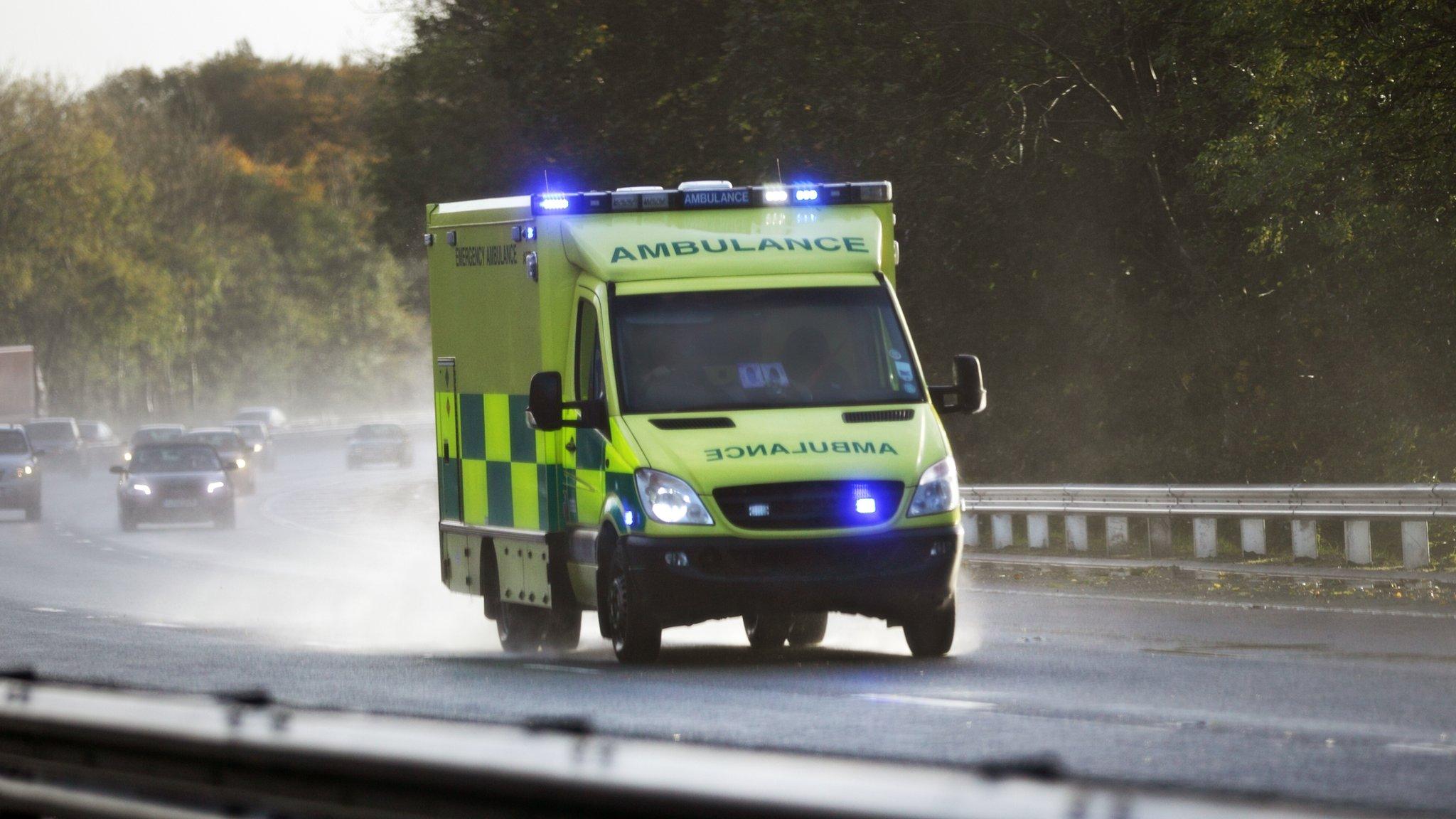
- Published14 September 2019
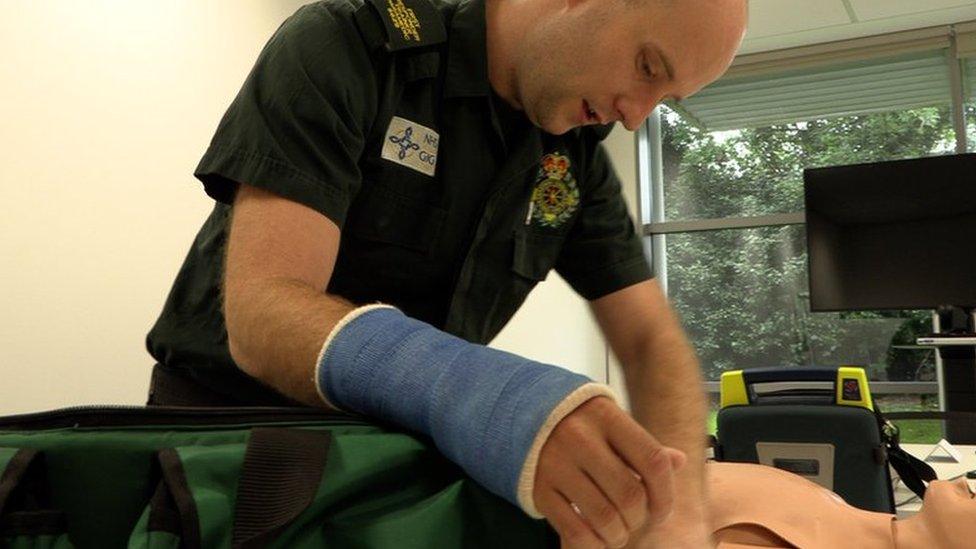
- Published11 January 2023
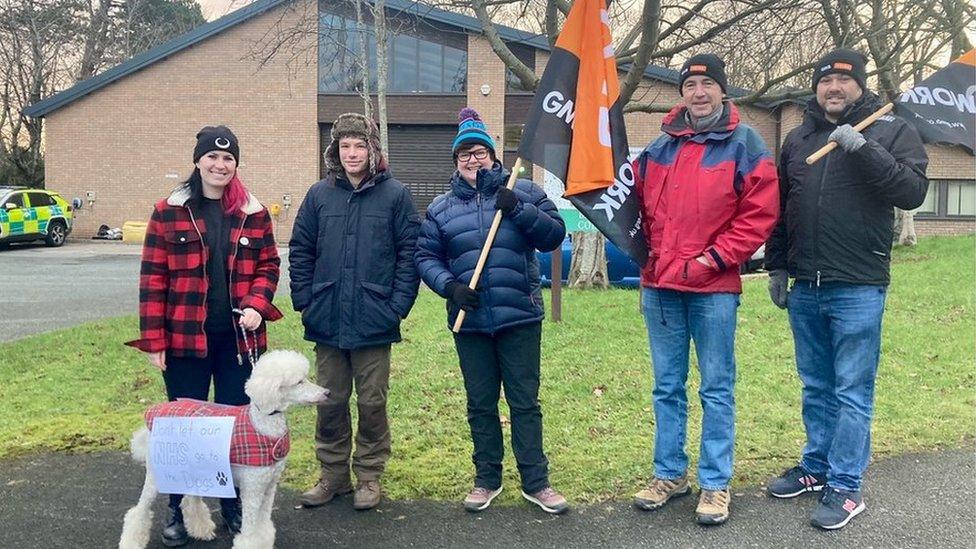
- Published4 June 2023
